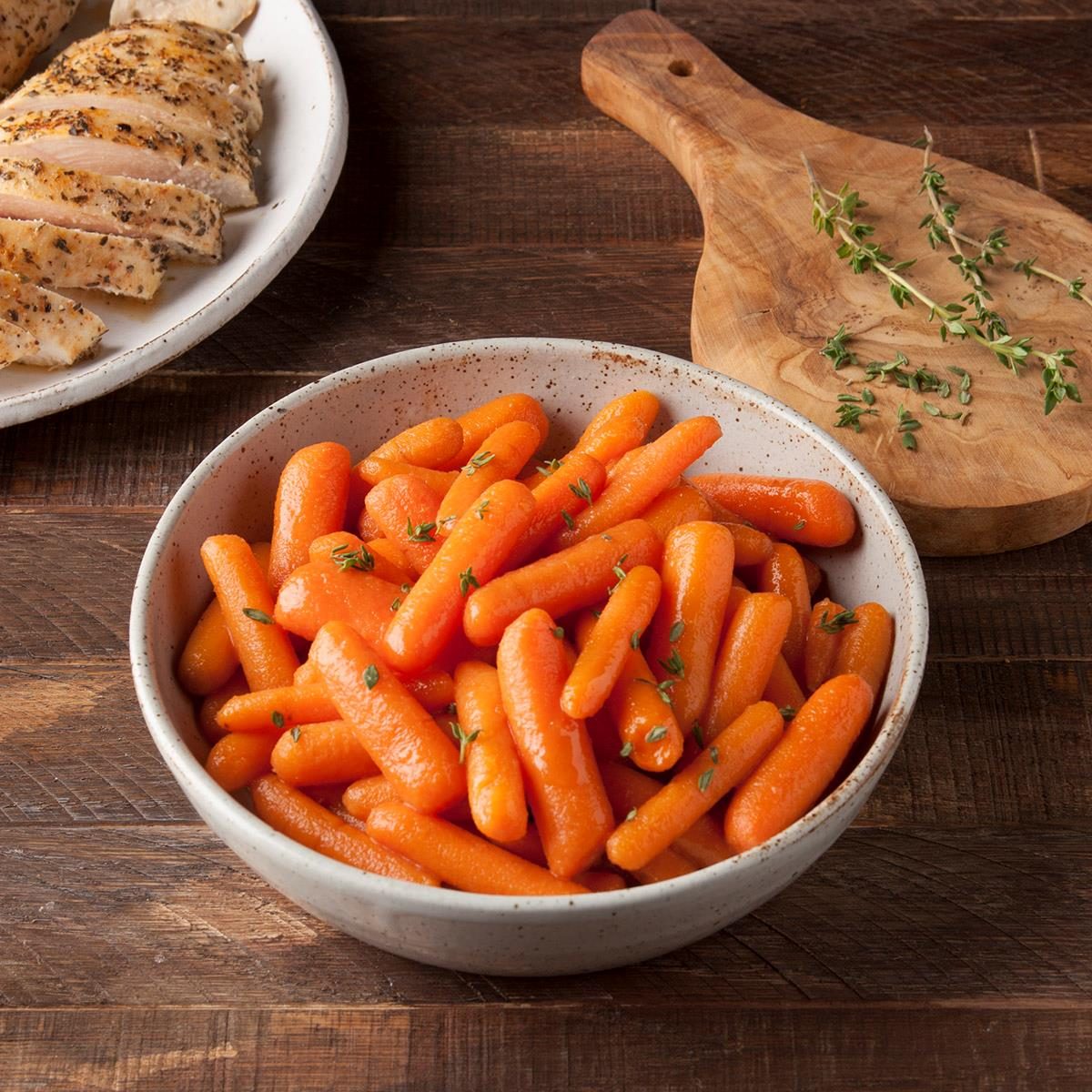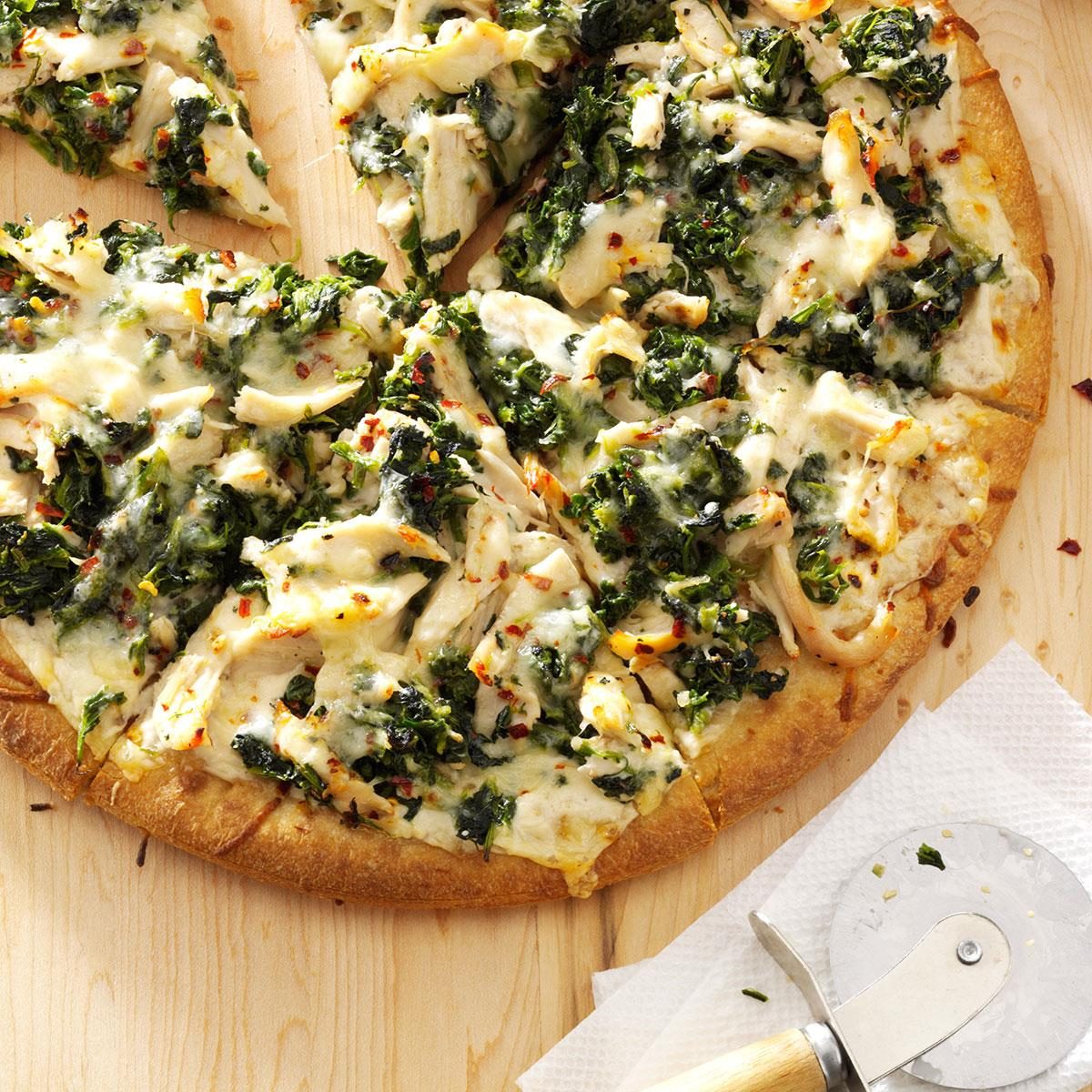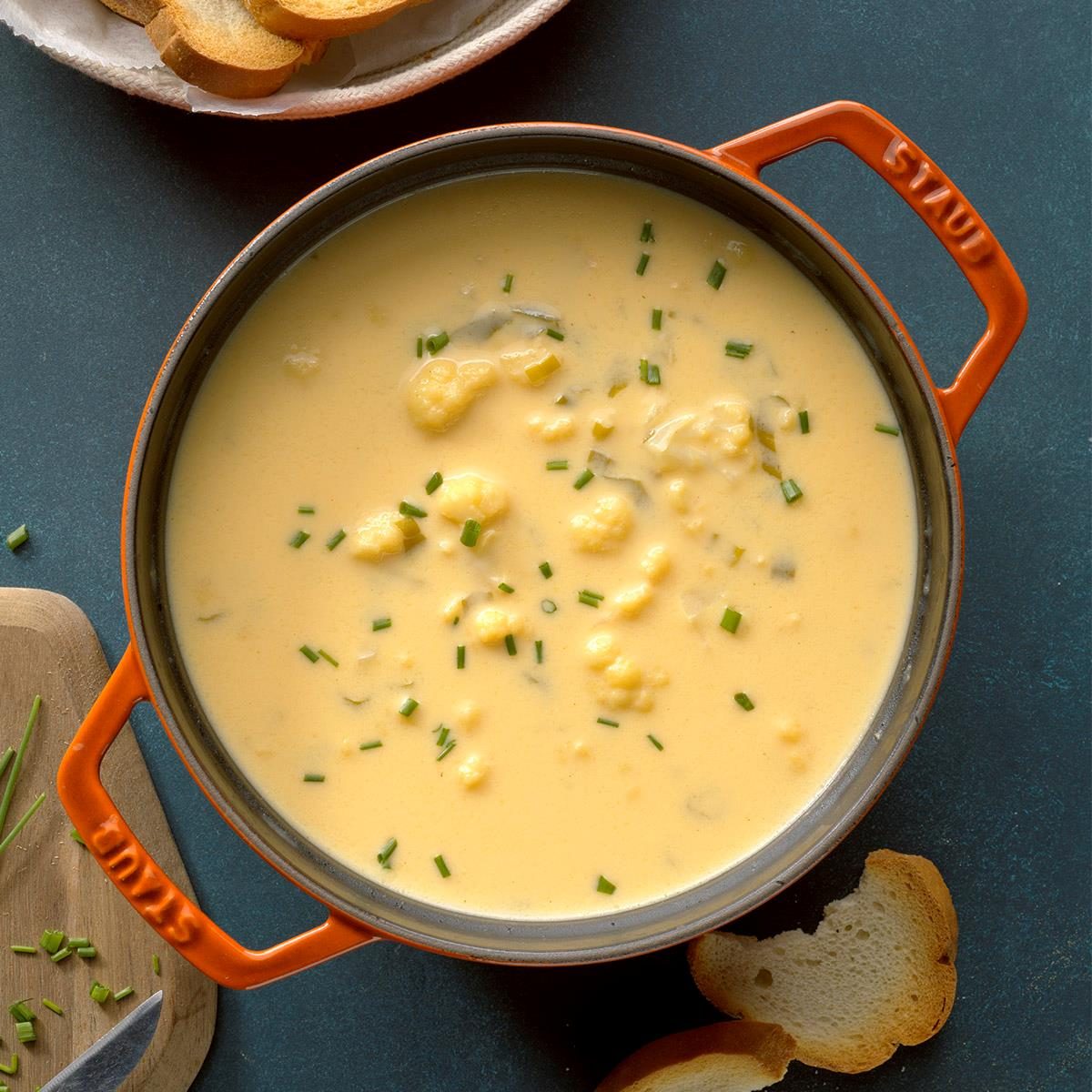
Frozen Broccoli
From honey chicken stir-fry to broccoli cheddar soup to quiche, frozen broccoli makes eating healthy incredibly simple. Broccoli contains vitamins K and C, potassium, folate, and has a healthy dose of fiber as well.
Pro tip: To preserve broccoli’s power-packed nutrients, avoid boiling it. Boiling can remove up to 90% of broccoli’s numerous health benefits.

Carrots
While you may have known that this orange veggie can help with eyesight, you might be surprised to learn that it contains cancer-fighting nutrients like beta-carotene, too. Beta-carotene is essential for healthy hair, skin and bones. Learn more about the health benefits of carrots.

Frozen Corn
Who doesn’t love an ear of corn? Buying it frozen guarantees you get the same creamy corn taste without the hassle of shucking it off the cob. Frozen corn can be used for just about anything from chicken tacos to soup to slow-cooked stew.
Corn typically gets a bad rap for being a starchy veggie, but it has quite a few health benefits that many people don’t know about. It can lower blood sugar, improve digestion and eyesight, just to name a few.

Frozen Brussels Sprouts
Gone are the days of despising this globe-shaped veggie. There are plenty of ways to dress up Brussels sprouts, and it’s made easier when you buy them frozen. What’s more, studies have shown that Brussels sprouts can prevent cancers, rheumatoid arthritis and osteoporosis.

Frozen Mixed Vegetables
A bag of mixed veggies comes with so many possibilities. Most include green beans, corn, peas and carrots. Which means that you get a rainbow of benefits in every bite.

Frozen Peas
Peas are one of the foods that we recommend buying frozen over fresh. They are a great source of iron and can prevent anemia. What’s even more, peas also help build immunity to illnesses. Just a single serving of peas gives you half of your daily vitamin C needs.

Frozen Spinach
As one of our favorite superfoods, we can’t get enough of vitamin-packed spinach. Spinach is fuels brain power and studies have shown that is may prevent dementia and Alzheimer’s disease. Nutritionist Vicki Shanta Retelny, RDN found that vitamin B folate found in spinach is known for reducing homocysteine, which is a toxic compound to neurons. Learn more about the benefits of spinach.

Frozen Cauliflower
Cauliflower is the new “it” vegetable. Hop on the bandwagon by buying it frozen. It’s likely so popular due to its ability to go incognito in tasty dishes. In need of a rice substitute? Craving General Tso’s Chicken? Looking for a low-carb pizza? Cauliflower can mask itself with any sauce, spice or seasoning you mix it with. Because of this, cauliflower recipes are a great way to get more veggies into your daily diet while satisfying your cravings.

Frozen Green Beans
Green beans aren’t just for casseroles anymore. Go outside of your comfort zone, with delicious green bean recipes that range from soups to skillets to muffins.
Plus, green beans are low on the glycemic index so they’re a great veggie for people with diabetes.

Frozen Stir-Fry Vegetables
Similar to mixed veggies, stir-fry veggies give an extra oomph of color and taste to every dish. Plus, who couldn’t love the convenience of throwing together a globally-inspired dish within seconds? These dishes are faster than your favorite take-out (and probably healthier, too).

Frozen Sugar Snap Peas
We believe snap peas are underrated. Crunchy and tender, juicy and sweet, these little morsels are just plain lovable. While they’re typically in season in the spring, you can find frozen snap peas all year long in the freezer section.
Similar to the other veggie’s benefits, sugar snap peas are high in fiber, improve bone and heart health and are a great source of iron. Oh and they’re less than 70 calories per cup? Yup, that too.
The post What to Make with Every Type of Frozen Vegetable appeared first on Taste of Home.
Christina Herbst